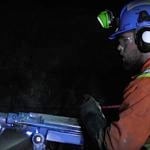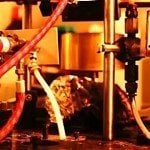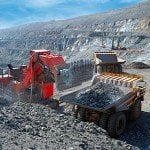The International Energy Agency (IEA) reports in its monthly report on the oil industry that Canadian producers reached 4.1 million barrels per day in December. Production was spread over the provinces of Alberta, Saskatchewan and Manitoba. Eastern offshore production contributed about 250,000 bpd.

The increased production comes as the industry awaits a final decision on the Keystone XL pipeline, which could come by the end of April.
However, whether the pipeline goes ahead or not, a report in Hydrocarbon Processing says that US refiners are finding ways to get Canadian crude. Many are turning to the railroads to deliver the crude from Alberta oil sands to Gulf coast refineries. Estimates say that rail shipments are set to double this year, to 200,000 bpd. The Keystone XL pipeline would carry 830,000 bpd of heavy crude. According to the Financial Post, 30,000 rail cars are being built in North America to ship the Alberta and other oil production to refiners.
The cheaper price of the Canadian crude, which has been selling at about two-thirds the cost of West Texas Intermediate, the US benchmark crude, makes the Alberta oil all the more attractive to US producers, though shipping a barrel of oil by rail can cost $20, more than double what it costs by pipeline.
Meanwhile, the nineteenth annual East Coast Energy Conference got underway in New York City today, with dozens of delegations from Calgary’s oil and gas industry— explorers, drillers, pipeline builders, financiers—descending on Wall Street to pitch Alberta oil to fund managers, principals and top investors attending the by-invitation event.

































